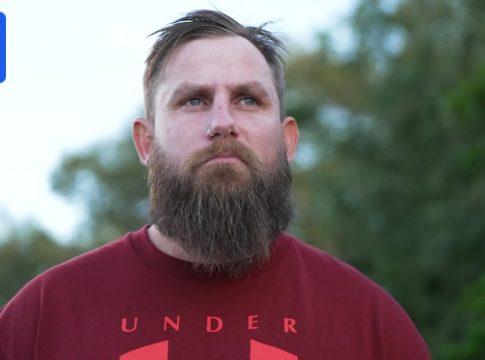The Heartbreaking Closure of Toowong Private Hospital: A Call for Awareness and Support
In a world where mental health care is becoming increasingly vital, the story of Cain Chambers, an Australian Army veteran, shines a light on the importance of specialized treatment. Chambers, who endured years of post-traumatic stress disorder (PTSD) following a tragic incident during his service, found solace at Toowong Private Hospital. However, recent developments threaten the availability of this crucial resource, raising questions about what lies ahead for many patients like him.
A Personal Journey Through Darkness
Chambers’ journey took a harrowing turn in 2022 when he was discovered unconscious on his front lawn, the result of a downward spiral marked by alcohol abuse and nightmares stemming from his military experiences. The loving intervention of his wife led him to Toowong, where he received much-needed inpatient care and mental health support. Reflecting on his experience, Chambers asserts, “I probably wouldn’t be alive if it wasn’t for Toowong.” For him and many veterans, this hospital was more than just a place to receive treatment; it was a lifeline.
The Impact of Closure
Unfortunately, Toowong Private Hospital is facing imminent closure due to financial difficulties, which stem from multiple challenges in the healthcare landscape, including rising treatment costs and underfunding from health insurers. As the hospital prepares to shut its doors after nearly 50 years of service, many patients—like Kerrie Czernia, who has battled major depression for over three decades—are left feeling anxious and uncertain about their care. “Where are we going to go now?” she wonders, highlighting a fear shared by many who rely on specialized treatment.
The Importance of Specialized Care
Toowong has been a pioneering facility in Brisbane, offering unique therapies, including intravenous ketamine for severe depression. With its specialized programs, it has addressed the specific needs of veterans and emergency responders. As healthcare professionals express their concern about the impending closure, they predict that some patients may find themselves in overcrowded emergency departments, delaying access to the mental health care they urgently need.
Understanding the Healthcare Landscape
The reasons behind Toowong’s closure are complex and multifaceted. The decline in the number of admitting psychiatrists, often due to better financial incentives in private clinics, has exacerbated the issue. Additionally, leaders in the field criticize health insurance companies for underfunding hospitals while reaping substantial profits. This has led to a scarcity of resources for those who need them the most.
Finding a Path Forward
Though the situation feels bleak, it’s essential to acknowledge that awareness and advocacy can make a difference. Experts are working tirelessly to establish connections with other facilities in the area to help patients transition smoothly. For those facing mental health challenges, the need for community support and understanding is more urgent than ever.
Empowering Conversations about Mental Health
As we reflect on the experiences of individuals like Chambers and Czernia, it becomes clear that specialized mental health resources are vital for recovery. The closure of a facility like Toowong affects not only the direct patients but the wider community.
What You Can Do
If you or someone you know is facing mental health challenges, consider these steps:
- Reach Out: Always seek help. Don’t hesitate to connect with mental health professionals or support groups.
- Stay Informed: Keep abreast of local mental health resources, including public options and community programs.
- Support Advocacy: Engage in conversations about mental health funding and access, helping to raise awareness within your community.
The battle for quality mental health care continues, and as we witness these changes, let’s strengthen our commitment to supporting one another and advocating for those in need. Together, we can foster a community where no one is left behind, especially in their most vulnerable moments.

Covers wellness, nutrition, mental health, and daily life tips.
Bio: Talia brings a background in health journalism and holistic living to help readers live better, one tip at a time.

